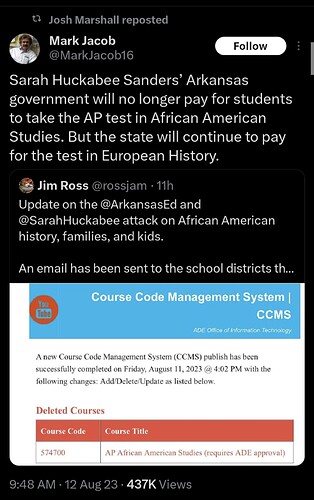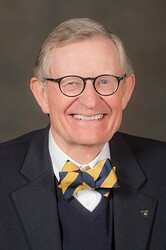Chris Rufo and DeSantis’s New College experiment isn’t going so well
When a committee of the New College of Florida Board of Trustees met in July, a whopping 36 faculty members had already left since Florida Governor Ron DeSantis initiated a conservative restructuring of the institution in January. That number has subsequently grown to more than 40, Amy Reid, the sole faculty member on the board, told Inside Higher Ed.
Now, as students prepare for the fall semester, the impact of the faculty exodus is becoming apparent: many classes won’t be offered at New College this term.
The course catalogue was already sparse when students first began looking at classes last spring. Dani Delaney, the mother of one former New College student who is transferring to Hampshire College in Massachusetts—which guaranteed admission to all New College students in good standing—said her son could only find two classes that counted toward his “area of concentration” (which is what New College calls majors). When he contacted the institution about the lack of relevant courses, she said, he was told the course catalogue was “in flux” and to “choose something else.”
New College officials did not respond to a question regarding whether the university is planning to do anything to help students whose courses have been canceled. The college is currently trying to recruit more faculty. Chris Rufo, the conservative activist-turned-New College trustee appointed by DeSantis, posted on X on Friday that the college is hiring a “large cohort of new tenure-track faculty” in 14 departments, directing prospective candidates to contact him at his personal email account.
Reid, a professor of French and the director of the gender studies program, said that New College’s faculty and division chairs have been working to hire replacements for their colleagues who have left—on top of taking on increased teaching and advising loads themselves. But the university’s new political identity has made it difficult to do so.
“The division chairs have made a heroic effort this summer to fill in the gaps in our academic programs,” she said. “Sadly, their efforts are being hampered by an ideological litmus test imposed by the administration.”
The incoming freshman class, which is the largest in New College’s history, will include at least 341 students; 155, or just under half, are athletes, according to university spokesperson Nathan March.
Administrators worked to boost enrollment after years of “stagnation,” USA Toda y reported last month, with Interim President Richard Corcoran pushing for a freshman class of at least 300 students and offering financial rewards to admissions officers who met the goal. The recruitment strategy centered on developing an athletic program, which March said will include baseball, softball, men’s and women’s basketball, and men’s and women’s soccer teams.
According to the USA Today article, the baseball team had 70 players as of July, compared to 37 on the University of Florida’s Division I team.
Note New College is not in any division at all. They’ve never had any of these sports teams before this year.
Students placed in the Home2 Suites hotel worry about how they will commute to and from New College, about a mile away. For those without vehicles, the journey consists of a 15-minute walk largely along a stretch of busy highway. Parents and faculty have also complained that high levels of crime make the area unsafe, especially at night. While a shuttle is available, it is infrequent—running hourly until 11 p.m.—and can only carry a handful of passengers.
Communication about the changes has been sporadic and confusing, students say. They received numerous emails asking them to confirm within a short timeframe where they planned to live in the fall. A July 11 email that Nagle shared with Inside Higher Ed gave them four days to confirm whether they had secured off-campus housing; another email, delivered Aug. 2 and shared by Delaney, informed students that the on-campus housing was full and asked them to confirm by Aug. 7 if they wanted to live in the Home2 Suites.
“If you do not send a message by this date we will assume that you will be seeking off campus housing accommodations for the fall semester,” the email read.
The details of New College’s contract with the hotel, made public just ahead of the Aug. 10 board meeting, listed a number of policies for students that are significantly more stringent than the college’s. While the college allows students over 21 to drink alcohol in their dorms and in certain outdoor areas, for instance, residents of the Home2 Suites are not permitted to drink, regardless of their age.
Students will not be able to order room service and the hotel will “not supply any food and beverage service” except for coffee, according to the contract. But the hotel also bans cooking appliances like hot pots and toaster ovens, and while this is consistent with New College’s residential policies, on-campus students will have easier access to the college’s dining hall and deli.
![]()
![]()




